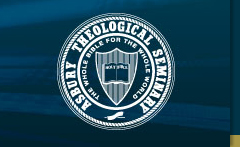
ATS Dissertations
Files
Download Full Text (52.7 MB)
Summary
John Sung, Ph.D. (1901-1944), was a Chinese scientist turned preacher whose public ministry lasted a mere twelve years. Yet his short life impacted tens of thousands, if not more. At a time when science was king and religion was relegated to the realm of myths, a scientist who preached an old-time religion, performed faith healings, and talked about the second coming of Jesus, must be quite "crazy," or hard to understand.
This dissertation is a biographical research seeking to discern contributing factors that made John Sung a central figure of twentieth-century Christianity. It explains the importance of Sung and his decided influence in the church, both in and outside of China. Along the way, it uncovers the reasons why one so unpolished in theology, whose ministry spanned so short a time, could become an important person who helped shape Asian Christianity. This in turn explains why he had been a neglected figure in historical scholarship, until now.
Based on archival and library research as well as personal interviews, this research uncovers significant aspects in John Sung's formative years, including his childhood in China and early adult years in America, that illuminate how Sung was shaped. The findings show that Sung was a rare figure who stood at the center of the Protestant theological maelstrom, religious tensions, and scientific challenges. Somehow, he came out unscathed by returning to his religious roots, though not without great struggles that almost cost him his brilliant mind.
The context of Sung's life is sketched in order to understand the shaping forces in the socio-political, religious, and cultural realms. This allows the readers to enter into Sung's setting, thus making evaluation meaningful. It also places Sung in a cultural context where he interacted under the guidance of the Spirit through the Word of God.
In discerning Sung's importance to Chinese Christianity of that period, Paul G. Hiebert's concept of the "excluded middle" is applied as a theoretical framework, showing how Sung could have made a lasting impact in lives that intersected with his. This is supplemented with the concepts of "biography as theology" (James William McClendon, Jr.) as well as "Biography as Missiology" (Ruth A. Tucker).
One of the contributions of this work is that it fills a gap in the understanding of the history of evangelism and mission, which up to now has ignored John Sung's important role in Chinese Christianity as a key contributor to the renewal of the church.
Further, this study shows that Sung's view and practice with regard to the Holy Spirit's role in believers' lives is relevant to Christians today. Properly understood, Sung's practice helps Christians avoid the flaws of the excluded and expanded middles. Finally, this research concludes that biblical truth carefully lived under the full guidance of the Holy Spirit will result in sanctified living that touches all aspects of life, which in turn, becomes a winsome witness to a genuine faith that transforms lives and society.
OCLC
690027398
Series
Thesis (Ph. D.), 2009
Publication Date
6-2009
Adviser
Howard A. Snyder
Keywords
2009, Ph., D., 690027398, Shangjie, Song, 1901-1944, China, Evangelists, Biography
Disciplines
Missions and World Christianity
Biography
Includes bibliographical references (leaves 448-490).
Call Number
BV3785.S82 .L55 2009
Language
English


Comments
Thesis (Ph.D.)--Asbury Theological Seminary, 2009.